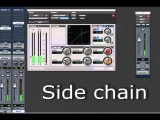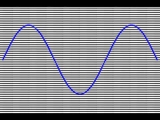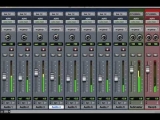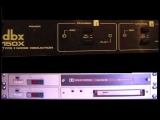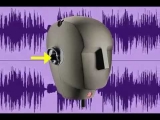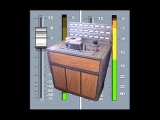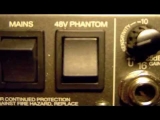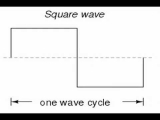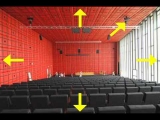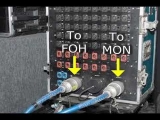The Mellotron.m4v
The Mellotron.m4v
In the early 1960s, before there were sampling synthesizers, British audio engineers copied and improved on Harry Chamberlin’s design of his Chamberlin Music Master. They created a musical instrument that could reproduce orchestral sounds better than anything that had been previously instrument, known as the mellotron, uses tape recordings of various orchestral instruments. However, instead of a tape loop, these are 8-second recordings, that always start at the very beginning, so that the sounds always have a natural a key is depressed, the tape starts to move across the playback head. A pulley system snaps the tape back to the beginning as soon as the key is released. If a group of notes needs to be held longer than 8 seconds, the mellotron musician has to be very skillful to release notes and then replay them in such a way that no detectible break is heard. There’s also a tuning knob, which is useful, since when many notes are played simultaneously, the drag of the multiple tapes often slows down the capstan and makes the pitch go slightly flat. This can be corrected by using the tuning tapes are a non-standard 3/8″wide, (as opposed to ” or “), possibly to insure that the tapes can not be copied or duplicated, or possibly for added tensile strength or better any case, mellotrons were popular in the 60s and 70s and were used by many bands both in studio and in live performances.


